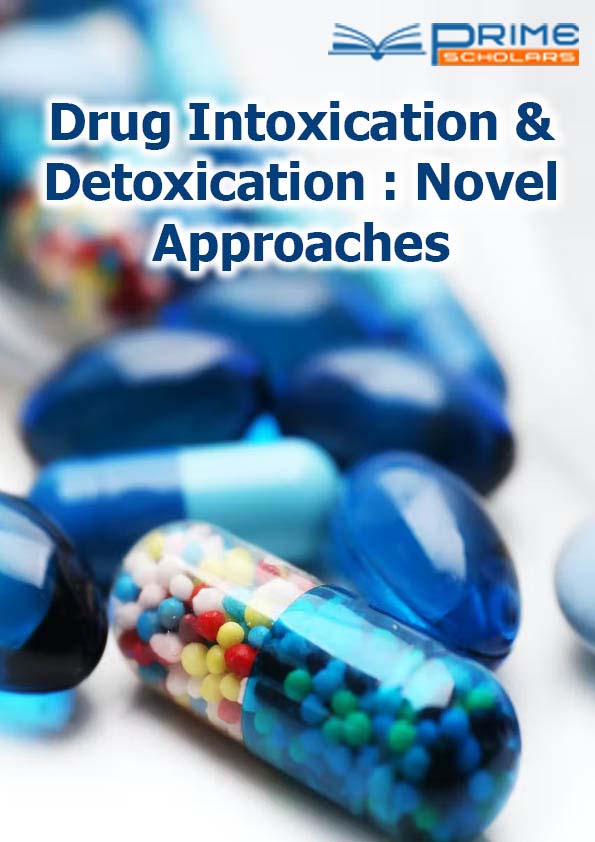Perspective - (2023) Volume 4, Issue 2
The Impacts of Alcohol and Medications of Maltreatment on Maternal Wholesome Profile
Garcia Algar*
Department of Medicine, University of Valencia, Spain
*Correspondence:
Garcia Algar,
Department of Medicine, University of Valencia,
Spain,
Email:
Received: 31-May-2023, Manuscript No. DIDNA-23-16836;
Editor assigned: 02-Jun-2023, Pre QC No. DIDNA-23-16836 (PQ);
Reviewed: 16-Jun-2023, QC No. DIDNA-23-16836;
Revised: 21-Jun-2023, Manuscript No. DIDNA-23-16836 (R);
Published:
28-Jun-2023, DOI: 10.36648/DIDNA 4.2.16
Introduction
The utilization of liquor and medications of maltreatment
among pregnant ladies has encountered a critical expansion
somewhat recently. Reasonable maternal wholesome status is
urgent to keep up with the ideal climate for fetal turn of events
yet assuming utilization of liquor or medications of misuse disturb
the admission of supplements, the likely teratogenic impacts
of these substances increment. In spite of proof of the
significance of sustenance in dependent pregnant ladies, there
is an absence of data on the impacts of liquor and medications
of maltreatment on maternal wholesome status; thus, the focal
point of this survey was to give an outline on the healthful
status of dependent moms and babies.
Description
Liquor and medications utilization can impede the retention of
supplements, debilitating the quality and amount of legitimate
supplement and energy admission, bringing about hunger particularly
of micronutrients (nutrients, omega-3, folic corrosive,
zinc, choline, iron, copper, selenium). At the point when maternal
dietary status is undermined by liquor and medications
of misuse the stockpile of fundamental supplements are not
accessible for the hatchling; this can bring about fetal anomalies
like Intrauterine Development Limitation (IUGR) or Fetal
Liquor Range Problem (FASD). It is important to find ways to
reduce the physical and neurological debilitating effects of prenatal
alcohol and medication, openness abuse, and maternal
nutritional deficiencies in the fetus.
Proper nutrition is the basis for producing healthy offspring.
Impaired maternal health due to the harmful effects of alcohol
and drug abuse leads to a lack of essential nutritional supplements
required for proper development of the embryo, leading
to poor health. Although new publications focus on maternal
health and alcohol abuse during pregnancy, there are few current data on the health of pregnant drug victims. In addition,
people who use drugs are typically substance abusers and are
at risk of compromising their health, including: Needle sharing,
unprotected endless sex with multiple partners. This puts
them at a particularly high risk of contracting Human Immunodeficiency
Disease (HIV) infection. Therefore, changes in maternal
diet are multifactorial and not based solely on explicit
substances.
Alcohol is an addictive psychoactive substance. The WHO alcohol
regulations indicate that alcoholism is not entirely determined
by the amount of alcohol consumed, the sample of alcohol
consumed and, in some cases, the type of alcohol. Heavy
and prolonged drinking (HED) is defined as drinking at least 60
grams of pure alcohol (6 or more standard drinks in many countries)
about once a month. Harmful alcohol use is an example
of alcohol use that impairs physical or mental health. Alcoholism
is often associated with strong drinking urges, difficulty
controlling alcohol consumption, continued drinking despite
adverse consequences, increased resilience, and sometimes
physiological withdrawal. Appropriately, this study is designed
to support healthy births by explicitly addressing the effects
of alcohol and drug digestion on the lack of nutritional supplements
for fetal development, and their interaction with the
use of alcohol or drug concentrations. We seek to highlight the
evidence regarding the feasibility of objective nutritional supplements
for pre-supplementation.
Conclusion
The positive action of such dietary supplements reduces the
harmful effects of alcohol and drugs on the foetus, thereby preventing
long-term incapacity. Proper diagnosis of compulsions
in all women of childbearing potential, promotion of health
care, and access to substance abuse programs for women diagnosed
with addiction problems are available in all major treatment
settings.
Citation: Algar G (2023) The Impacts of Alcohol and Medications of Maltreatment on Maternal Wholesome Profile. Drug Intox
Detox: Novel Approaches. 4:16.
Copyright: ©2023 Algar G. This is an open-access article distributed under the terms of the Creative Commons Attribution Li-
cense, which permits unrestricted use, distribution, and reproduction in any medium, provided the original author and source
are credited.
